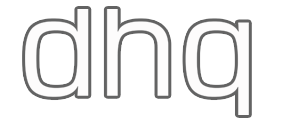您正在访问旧版存档页面。This is the old version archive of our site.
DHQ: Digital Humanities Quarterly

DHQ (Digital Humanities Quarterly) is an open-access peer-reviewed journal from ACH. Launched in 2007, DHQ publishes articles, reviews, case studies, and opinion pieces on all aspects of digital humanities, as well as guest-edited thematic and language-specific special issues.
官方网站:
http://www.digitalhumanities.org/dhq/
该刊物最新动态:
- An Annotated Multilingual Dataset to Study Modality in the Gospels
- Gamer Trouble: A Review
- Building an Interface as an Argument? The Case Study of Untangling the Cordel
- Tractable Tensions: A Review of Digital Humanities: Knowledge and Critique in a Digital Age by David M. Berry and Anders Fagerjord
- Fingerprints of British Book History: A Feminist Labor History of EEBO
- Cross-codex Learning for Reliable Scribe Identification in Medieval Manuscripts
- Recognition and Analysis of the Proceedings of the Greek Parliament after WWII
- Exploring Combinatorial Methods to Produce Sonnets: An Overview of the Oupoco Project
- Cuneiform Stroke Recognition and Vectorization in 2D Images
- Seeking Information in Spanish Historical Newspapers: The Case of Diario de Madrid (18th and 19th Centuries)
- Problems of Authorship Classification: Recognising the Author Style or a Book?
- Category Development at the Interface of Interpretive Pragmalinguistic Annotation and Machine Learning: Annotation, Detection and Classification of linguistic routines of discourse referencing in political debates
- Categorial Relations in (Re)constructing Topoi and in (Re)modeling Topology as a Methodology: Vertical, horizontal, heuristic and epistemological interdependencies
- A Synoptic Primer: Review of Wissensrohstoff Text: Eine Einführung in das Text Mining (2022)
- Author Biographies
- Developing Computational Models for Formalizing Concepts in the British Colonial India Corpus
- Case Study: Annotating the Ambiguous Modality of must in Jane Austen’s Emma
- Made to Be a Woman: A case study on the categorization of gender using an individuation-based approach in the analysis of literary texts
- Are Ontologies Trees or Lattices?
- 2023
- Interlinking Text and Data with Semantic Annotation and Ontology Design Patterns to Analyse Historical Travelogues
- Rich Veins of Ore: A Review of Gabe Ignatow and Rada Mihalcea’s An Introduction to Text Mining: Research Design, Data Collection, and Analysis
- A Review of Oral Tradition and the Internet: Pathways of the Mind by John Miles Foley
- AR and Public Participation in Maputo City: An Exploratory Study
- What Counts? Digital Humanities Pedagogy Seminars as Teaching
- Unveiling the Editing Process of Japanese Demons Picture Scrolls: How Digital Humanities Played a Role in Developing a New Theory in Art History
- Starting and Sustaining Digital Humanities/Digital Scholarships Centers: Lessons from the Trenches
- Visualizing a Series: Aggregate Compositional Analysis of Botticelli's Commedia
- DH as Data: Establishing Greater Access through Sustainability
- The Digital Environmental Humanities (DEH) in the Anthropocene: Challenges and Opportunities in an Era of Ecological Precarity
- Project Quintessence: Examining Textual Dimensionality with a Dynamic Corpus Explorer
- History Harvesting: A Case Study in Documenting Local History
- Reconstructing historical texts from fragmentary sources: Charles S. Parnell and the Irish crisis, 1880-86
- Discourse cohesion in Xenophon’s On Horsemanship through Sketch Engine
- Automated Transcription of Gə'əz Manuscripts Using Deep Learning
- An Integral Web-map for the Analysis of Spatial Change over Time in a Complex Built Environment: Digital Samos
- How to Do Things with Deep Learning Code
- Computational art Explorations of Linguistic Possibility Spaces: comparative translingual close readings of Daniel C. Howe’s Automatype and Radical of the Vertical Heart 忄
- Slow Listening: Digital Tools for Voice Studies
- Any Means Necessary to Refuse Erasure by Algorithm: Lillian-Yvonne Bertram’s Travesty Generator
- The Politics of Tools
- Poetry as Code as Interactive Fiction: Engaging Multiple Text-Based Literacies in Scarlet Portrait Parlor
- Unpacking tool criticism as practice, in practice
- Historical GIS and Guidebooks: A Scalable Reading of Czechoslovak Tourist Attractions
- BASIC FTBALL and Computer Programming for All
- Tracing Toxicity Through Code: Towards a Method of Explainability and Interpretability in Software
- SEDES: Metrical Position in Greek Hexameter
- Nonsense Code: A Nonmaterial Performance
- Language, Materiality, and Digital Neapolitanitá
- ᐊᒐᐦᑭᐯᐦᐃᑲᓇ ᒫᒥᑐᓀᔨᐦᐃᒋᑲᓂᐦᑳᓂᕽ | acahkipehikana mâmitoneyihicikanihkânihk | Programming with Cree# and Ancestral Code: Nehiyawewin Spirit Markings in an Artificial Brain
- Author Biographies
- Distant Reading and Viewing: Big Questions in Digital Art History and Digital Literary Studies
- The Less Humble Programmer
- Sentiment Analysis in Literary Studies. A Critical Survey
- 2023
- Computational Paremiology: Charting the temporal, ecological dynamics of proverb use in books, news articles, and tweets
- Tool criticism in practice. On methods, tools and aims of computational literary studies
- Bias in Big Data, Machine Learning and AI: What Lessons for the Digital Humanities?
- Working on and with Categories for Text Analysis: Challenges and Findings from and for Digital Humanities Practices
- The Explainability Turn
- Author Biographies
- From semi-structured text to tangible categories: Analysing and annotating death lists in 18th century newspaper issues
- Reverse Engineering the Gendered Design of Amazon’s Alexa: Methods in Testing Closed-Source Code in Grey and Black Box Systems
- Cluster Analysis in Tracing Textual Dependencies – a Case of Psalm 6 in 16th-century English Devotional Manuals
- Categorising Legal Records – Deductive, Pragmatic, and Computational Strategies
- Visualization of Categorization: How to See the Wood and the Trees
- Making the Whole Greater than the Sum of its Parts: Taxonomy Development as a Site of Negotiation and Compromise in an Interdisciplinary Software Development Project
- Automatic Identification of Rhetorical Elements in classical Arabic Poetry
- Introduction: Situating Critical Code Studies in the Digital Humanities
- Machine Learning Techniques For Analyzing Inscriptions From Israel
- Preview
